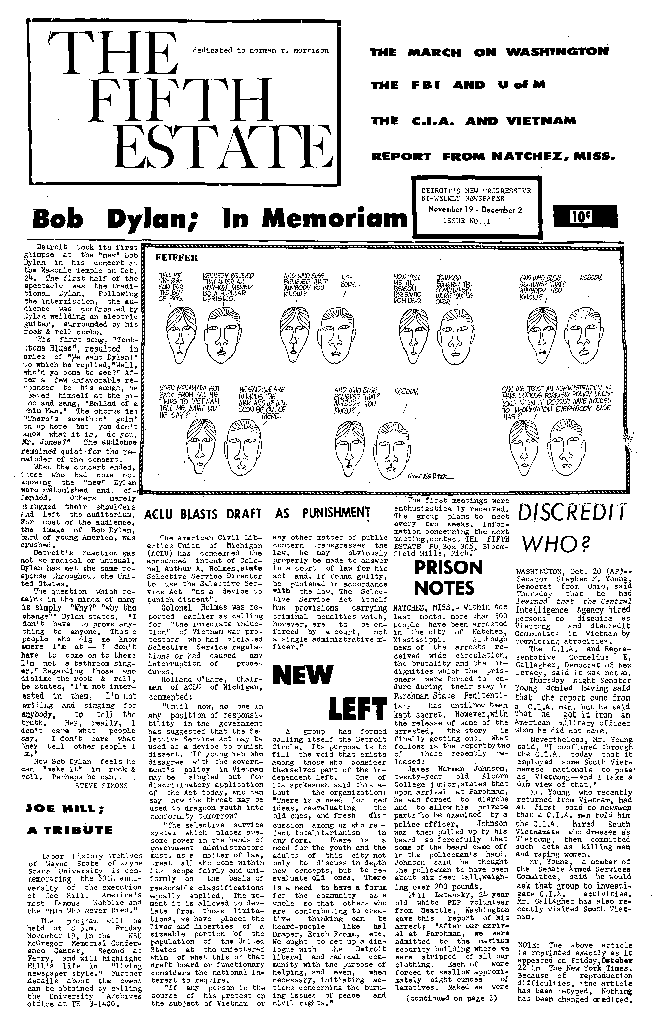People always ask about the meaning of our publication’s odd name. It is odd, and for our purposes over the last thirty years or so, a particularly problematic one. The word Estate in the title refers to the three powerful French Estates of the Realm at the time of the 1789 revolution—the aristocracy, clergy, and common people. A wag in the 1920s quipped that the popular press exercised such power over public opinion, it was literally a fourth estate.
 This publication’s founder saw the name of a Los Angeles coffeehouse where he hung out in 1965, apparently one up on the Fourth Estate, and brought it back to Detroit for his new paper.
This publication’s founder saw the name of a Los Angeles coffeehouse where he hung out in 1965, apparently one up on the Fourth Estate, and brought it back to Detroit for his new paper.
We’ve been saddled with a doubly inappropriate name for five decades, given our opposition to both the quantification and division of life into different and competing categories, and to estates of any kind. Although we’ve considered changing the name, it signifies a continuity we don’t want to lose.
The Canadian Broadcasting Company’s national TV news program began a magazine format segment in 1977 using the same name. We wrote them suggesting that since we had been publishing under that title since 1965, they should find a different one. They never responded to our letter.
A Connecticut-based musical group with our name had a 1967 rocked-up hit version of, “Ding-Dong! The Witch Is Dead,” which didn’t help.
Nor did the film taking that title for the 2013 biopic about Wikileaks and its founder, Julian Assange.
Perhaps, though, the name has gained a legitimacy now that it generically refers to bloggers, journalists, and non-mainstream media outlets.
That would be us.
Adapted from an article in the Fifth Estate 40th anniversary issue, #368-369 Spring-Summer 2005
